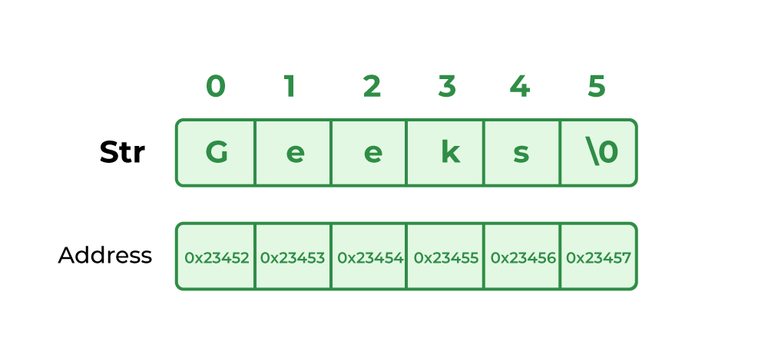Why Are Strings Immutable in Java? Vital Knowledge for Developers
Why Are Strings Immutable in Java? Vital Knowledge for Developers
Blog Article
Immutable Strings: A Key Element in Ensuring Data Uniformity and Reliability
In the world of information administration, the value of unalterable strings can not be overemphasized. These constant series of characters play a crucial role in supporting the integrity and accuracy of details within systems. By keeping a state of immutability, information consistency is made sure, fostering a structure of dependability whereupon vital procedures depend. The concept of unalterable strings transcends plain triviality; it is a cornerstone in the complex web of data administration. As we check out the advantages, execution techniques, and useful applications of immutable strings, a clearer photo emerges of their indispensable nature in protecting the electronic landscape.
The Concept of Immutable Strings
Unalterable strings, an essential principle in shows, refer to strings that can not be modified as soon as they are developed. In essence, once a string value is designated, any type of procedure that shows up to modify the string actually produces a new string. This immutability ensures data consistency and reliability in applications, as it prevents unforeseen modifications to the original information.
Benefits in Data Consistency

Information uniformity is critical in different aspects of software program development, consisting of data source management, multi-threaded settings, and dispersed systems (Why are strings immutable in Java?). Unalterable strings add dramatically to accomplishing this consistency by stopping data corruption as a result of simultaneous access. In situations where several procedures or strings engage with the same information concurrently, immutable strings work as a protect versus race conditions and synchronization concerns
Additionally, the immutability of strings streamlines debugging and testing procedures. With unalterable strings, developers can rely on that when a string is set, it will remain unmodified, making it less complicated to trace the resource of mistakes and ensuring that test situations produce regular outcomes. This integrity in information handling eventually leads to more secure and durable applications.

Executing Immutable Strings
Ensuring the immutability of strings requires a thoughtful method to their implementation in software program development. When a string item is developed, one essential approach is to make string courses in a means that avoids modifications. By making strings unalterable, designers can improve information uniformity and integrity in their applications.
To execute unalterable strings successfully, programmers must favor creating brand-new string things rather than customizing existing ones. This technique makes certain that when a string is designated a worth, it can not be transformed. Furthermore, any type of operation that shows up to change the string should create a new string with the preferred changes rather than altering the initial.
Additionally, using immutable strings can streamline concurrency management in multi-threaded atmospheres. Given that unalterable strings can not be altered after development, they can be securely shared amongst several threads without the threat of data corruption.
Duty in Dependability Guarantee
In software application advancement, the use of unalterable strings plays an important role in guaranteeing the dependability of information procedures. Immutable strings, as soon as developed, can not be customized, guaranteeing that the data they represent stays constant throughout the application's execution. This immutability building gives a degree of guarantee that the data being processed will not be unintentionally transformed, bring about unforeseen outcomes or mistakes in the system.
By incorporating immutable strings right into software application layout, developers can enhance the integrity of their applications by decreasing the threats related to mutable data - Why find this are strings immutable in Java?. Unalterable strings assist in protecting against information corruption or unplanned alterations, which can be particularly critical when dealing with sensitive info or when information stability is paramount
Additionally, making use of unalterable strings simplifies simultaneous processing, as several strings can securely gain access to and share string data without the danger of one string modifying the web content while an additional reads it. This aspect contributes substantially to the general integrity of the software program system, making sure consistent and foreseeable actions in data taking care of procedures.
Applications and System Assimilation
The smooth assimilation of immutable strings into various applications and systems is crucial for making certain durable data consistency and integrity across varied technological environments - Why are strings immutable in Java?. Unalterable strings play a critical function in enhancing the stability of information exchanges and communications within complex software application environments. By incorporating immutable strings into applications, programmers can reduce the dig this risks linked with data tampering, unapproved alterations, and inadvertent changes, thus fortifying the total safety posture of the system
In the context of system combination, immutable strings function as a foundational element for developing secure communication channels and promoting smooth data transfers in between various elements. Their unalterable nature ensures that information transmitted between systems remains the same and proven, lowering the chance of disparities or mistakes that can compromise the stability of the whole system. In addition, immutable strings can improve interoperability between diverse systems by giving a standardized layout for information representation, enabling more effective information processing and exchange methods throughout click here to read interconnected systems. By adopting unalterable strings in applications and system integration processes, organizations can fortify their data framework and maintain the reliability and consistency of their information assets.
Conclusion
Finally, immutable strings play a vital function in keeping data consistency and dependability in various applications and system assimilations. By making sure that strings can not be transformed when produced, the integrity of information is maintained, decreasing the threat of mistakes and incongruities. Executing unalterable strings can dramatically improve the dependability of systems, inevitably resulting in more accurate and trustworthy information processing.

Report this page